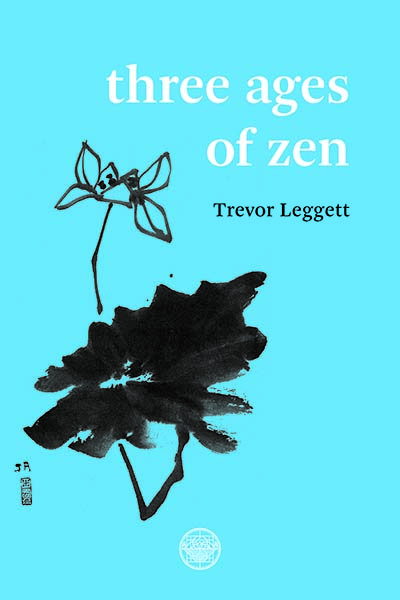Three Ages of Zen

Book description
The translations in this text illustrate three phases of Zen in Japan: Warrior Zen of crisis, when Japan faced and repulsed Kublai Khan’s naval attacks in the thirteenth century; feudal Zen for eighteenth century samurai officials and modern Zen found in twentieth century Japan. The first part presents koans from the secret records of temples in Kamakura. The second part is an inspiring essay written for a samurai official by abbot Torei and the third part contains extracts from the autobiography of Zen Master Tsuji Somei, one of the great Zen figures of the twentieth century.
Paperback published by the Buddhist Society in association with TLAYT
ISBN 9780901032485
Price £12.99
Book extract
Treading the Way of Zen
The Autobiography of Tsuji Somei
MY FIRST VISIT TO A MONASTERY TO PRACTICE ZEN WAS IN the summer of 1925, when I was twenty-two and in my first year at the Tokyo University of Commerce [now the prestigious Hitotsubashi University-Tr.] I was one of a student group at the university who practiced Zen meditation, and every year our group joined similar ones from other universities to go to Engakuji in Kamakura for a week’s intensive instruction and training.
Furukawa Gyodo Roshi was then the abbot of the monastery, and at my first interview with him, he asked:
“Why have you come here?” I replied: “Because I can’t sleep well.” He commented: “That’s because you bother yourself over idle thoughts even when you’re in bed,” and laughed.
I still recall this little scene vividly.
Sitting in the meditation posture for hours and hours, day and night, proved a hard task indeed: the pain in my legs was almost unbearable. Still, after the practice ended, I could sleep unusually well, and when I woke up the next day I thought to myself: “Last night I slept like a log.” In itself this was trivial, but the pleasure of this first sound sleep in many nights increased the pull to Zen.
During that first week I was impressed at the sight of the young monks working. To see them sweeping the extensive grounds with bamboo-twig brooms, in perfect silence and with full attention, put me in mind of the intensity of fencers practicing, and I felt a sort of reverence for them. It was also striking to see them walking rapidly, with their hands clasped over the breast and looking straight ahead.
In the early morning we followed them in ladling a little cold water with a dipper, from the large common basin into the hollow of one hand, to wash the face.
Again, when the slippers were taken off before entering the meditation hall, they had to be set down perfectly aligned, With the toes pointing outward so that the owner could smoothly slip the feet into them when leaving.
While keeping up my studies of social problems, I did not drop my interest in religion. Sometimes I went to Kamakura to have an interview with Master Gyodo, and I also attended lectures by other Zen masters in Tokyo itself. In those days I could make nothing of them, or even of those by Master Gyodo, and had a private impression of the croaking of frogs. But I was deeply impressed by his character and, when something important came up, I often went to him for advice.
I remember that once I was puzzling over the inconsistency between my profession as an accountant in a commercial firm and my religious aspirations; I had nearly decided to enter some other career. I went to the Roshi and told him what I was proposing to do. He listened in silence to all that I had to say, and then curtly remarked: “This is just your vanity.” It was like a great blow with a staff, crushing my deeply considered decision. Afterward I gradually came to realize that he was right.
One day I found myself in the guest room for an interview with the Roshi along with one other visitor, an elderly man. There was no difference at all in the Master’s attitude to him, and to the obscure young man that I was. Later on I asked who the old man had been, and discovered that he was a millionaire named Machida, who used to invite Master Gyodo to take monthly Zen sessions at his mansion. I was deeply impressed by the perfect equality with which the Roshi had treated the two of us.
For a hundred days after my wife’s death I chanted sutras, and repeated the invocation for a considerable time morning and evening. My three little children often kept company with me during these practices. Often at night I lay in bed with my arms stretched out to each side so that my children could hold my hands while falling asleep.
Meanwhile, I had begun to realize that one might engage in reform movements, political, economic, or social, but if one had not transcended his ego, one would be found to be acting for fame or power in the end, though claiming to be devoted to nation or society. I saw that it was a matter of paramount importance in life for any man to investigate what was his own true nature, and to get completely rid of his petty ego.